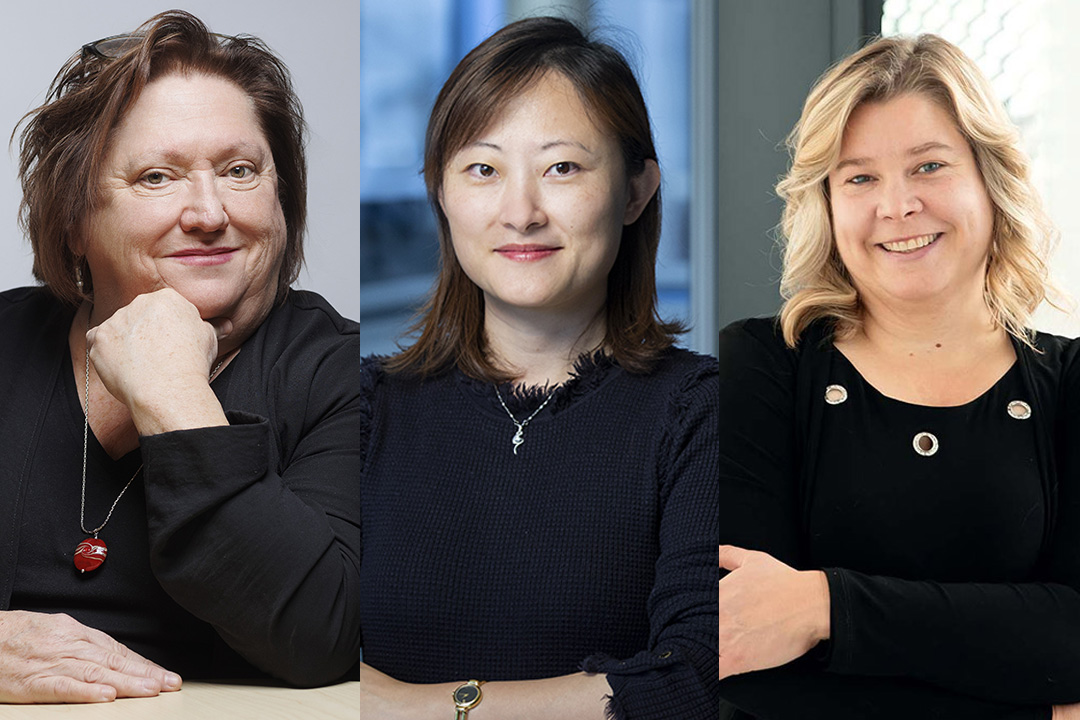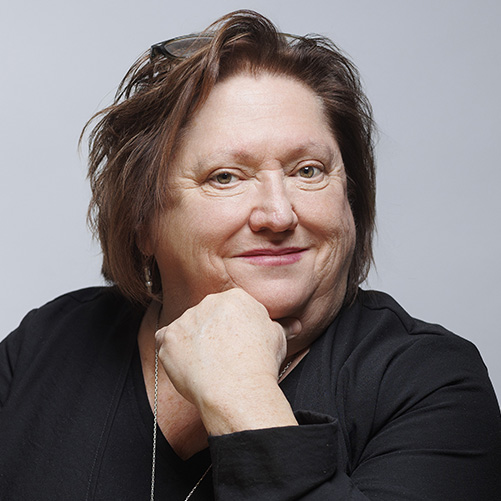
Verge, Yang, Lang honoured as top USask researchers
The University of Saskatchewan (USask) is honouring groundbreaking neuroscientist Dr. Valerie Verge (PhD), a professor in the College of Medicine’s Department of Anatomy, Physiology and Pharmacology, with its top academic honour of Distinguished Researcher. The award will be presented June 5 during Spring Convocation at Merlis Belsher Place.
By Sarath Peiris for Research Profile and ImpactAs well, USask is recognizing two outstanding community-engaged social scientists with New Researcher awards: Dr. Yang Yang (PhD) is an applied microeconomist and associate professor at the Johnson Shoyama School of Public Policy (JSGS); and Dr. Jennifer Lang (PhD) is interim vice-dean academic in the College of Arts and Science and associate professor of choral/music education. The awards will be presented June 26 at USask’s Faculty and Staff Awards Ceremony.
The awards, announced annually by USask Vice-President Research Baljit Singh, honour significant contributions to research, scholarly and artistic work (RSAW) at USask.
Dr. Valerie Verge (PhD)

“It’s unexpected, and I am truly humbled and grateful. This award is recognition of 45 years of having the best job—asking why for a living,” said Verge.
“Being surrounded by highly intelligent and inquisitive people, and working with collaborators who are the best in the world, allowed me to push the envelope and keep the research moving forward.”
The joint nomination letter by her department head Dr. Thomas Fisher (PhD), and Dr. Marek Radomski (MD), vice-dean research of the College of Medicine, lauded Verge’s pivotal work in elucidating mechanisms and therapies to enhance the body’s intrinsic repair capacity in peripheral nerve injury and Multiple Sclerosis (MS) preclinical models. As well, they cited her exceptional qualities as a leader, mentor, and advocate for neuroscience research funding.
Verge, who joined USask in 1992, began her innovative research career in 1980 at McGill University as a research technician. Mentored by renowned neurosurgeon/neuroscientist Dr. Peter Richardson (MD), she earned a PhD in 1990. Their research showed that the central nervous system’s intrinsic repair could be significantly increased given the right stressors or environment. Her doctoral work focused on the role of a key molecule driving nervous system plasticity—nerve growth factor.
Verge helped to create the Cameco MS Neuroscience Research Centre at Saskatoon City Hospital in 1994 and has served as its director since 2006. Her focus on identifying therapies to enhance intrinsic nervous system repair includes seminal collaborative research that shows direct nerve electrical stimulation (ES) following peripheral nerve repair significantly improves regeneration. However, ES is difficult to use for MS patients, where nerve cell degeneration and loss of myelin can be widespread.
Consequently, in collaboration with Dr. Gillian Muir (DVM, PhD), dean of USask’s Western College of Veterinary Medicine, Verge began investigating the efficacy of an exciting non-invasive therapy, acute intermittent hypoxia (AIH), to trigger an enhanced intrinsic repair response. AIH consists of a low number of cycles of breathing regular air alternating with brief exposure to reduced oxygen air. AIH therapy tested on mice with MS-like disease, and rat peripheral nerve regeneration showed remarkable results on every repair parameter examined, Verge said.
Based on these studies, the use of AIH in peripheral nerve injury and MS is moving toward clinical trials. Approvals are in place for a Phase 1 trial led by the co-principal investigator on her Canadian Institutes of Health Research grant, Dr. Ming Chan (MD), University of Alberta’s Division of Physical Medicine and Rehabilitation. Their trial will compare the efficacy of AIH versus ES in treating patients scheduled for severe carpal tunnel surgery. On the MS front, Verge is a co-investigator on a proposed AIH MS safety and efficacy Phase 1 trial led by USask clinicians Dr. Katherine Knox (MD), Physical Medicine and Rehabilitation, and Dr. Sarah Donkers (PhD), School of Rehabilitation Science.
Verge is a strong mentor, supporting more than 67 trainees. Her neuroscience research advocacy efforts included provincial, national and international initiatives, and involvement in the Medical Research Council of Canada, and CIHR policy-forming committees. In a national leadership role, she served as president (only the second woman to hold this position) of the Canadian Association for Neuroscience from 2003 to 2005, broadening its reach to Canadian neuroscientists and increasing advocacy efforts.
She has secured more than $12 million in funding from federal and local sources, published 82 peer-reviewed papers, 13 book chapters, and co-edited three books, with her work cited over 10,900 times.
“I have been fortunate to have had consistent research funding and a multidisciplinary team with the curiosity, drive and perseverance to discover the unknown. We are making tremendous progress,” Verge said. “It’s been very fulfilling.”
Read more on the University of Saskatchewan's news site.
